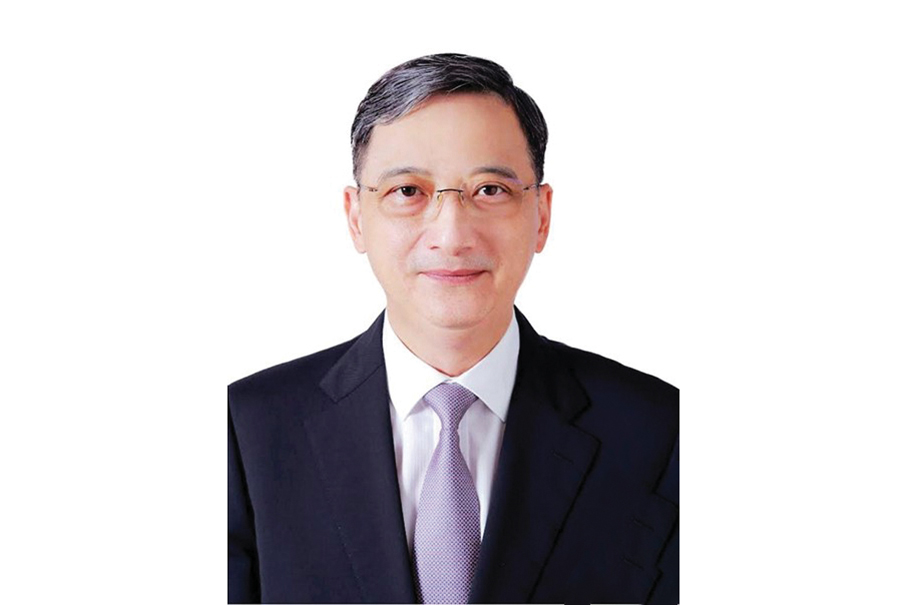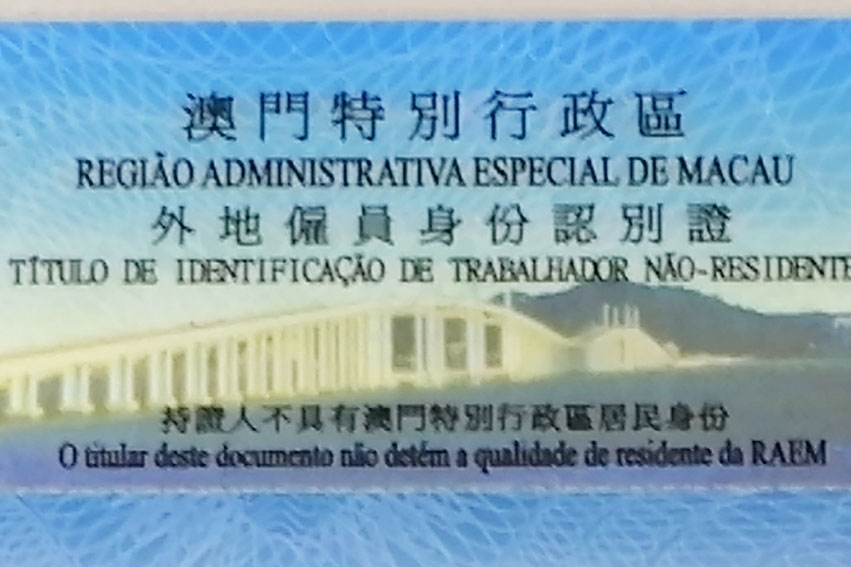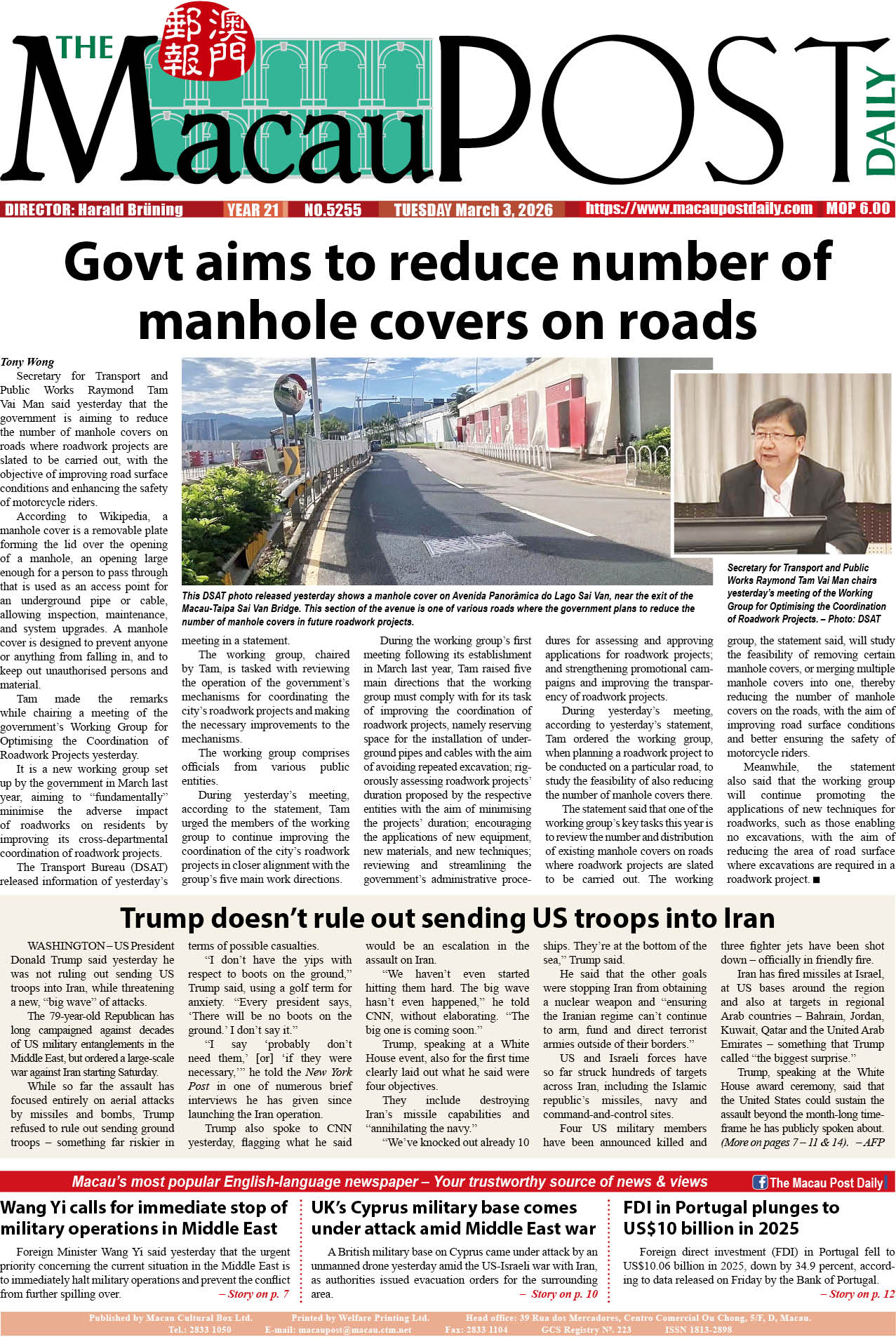Health Bureau (SSM) Director Alvis Lo Iek Long insisted earlier this year that the supply of Macau’s healthcare education market was adequate, with more than 150 local medical graduates studying abroad every year, but indirectly-elected lawmaker-cum-doctor Chan Iek Lap said yesterday that the number of specialist training places was insufficient to meet local medical graduates’ demand, urging the government to optimise its training system for doctors with particular emphasis on the training of medical specialists.
Dr Chan did not elaborate on the number of specialist training places provided for medical graduates every year. However, another lawmaker, Leong Sun Iok, said in the Legislative Assembly’s hemicycle earlier this month that in the past two years, only 99 to 115 medical graduates were arranged places for their specialist training, quoting a report by the Audit Commission in 2011 which noted that more than 120 medical specialists were expected to retire between 2020 and 2025, with a wave of doctors set to retire in 2026.
Speaking to the Post by phone yesterday, Dr Chan said that physicians’ retirements have been hitting Macau’s healthcare sector, adding: “We hope that the Macao Academy of Medicine would expedite the statistics on the problem of the insufficient number of doctors in certain medical specialities and focus on accelerating the training in this area”. He expressed concern that medical graduates have to face a long road of study before they can practise medicine: “When our young people go to medical school in the hope that they can serve the public after graduation, the reality is that there are so many thresholds to climb before they can achieve their dream”.
“Training up a specialist takes at least 15 years. Even if many medical students graduate from the standard five-year academic structure every year, they still need to spend at least seven to eight years on learning and training before they can qualify as specialists, or even longer if there is a slight delay in the process,” Dr Chan said, adding he had noticed that “there are quite a few medical graduates who have joined the food-delivery market”.
According to the government-run Macao Academy of Medicine, which is responsible for determining the admission procedures for specialist training, admission to specialist training consists of two processes, namely its competency assessment and the residency for tuition classification. Candidates who pass the competency assessment procedure must complete the basic training course for admittance as resident doctors in medical institutions or places recognised by the Macao Academy of Medicine.
With the increasing demand for healthcare in the community, even though there has been an increase in the number of healthcare professionals in Macau in recent years, the problem of a shortage of public medical practitioners still exists. According to a statement by the Health Bureau in mid-June, the Macao Academy of Medicine currently has 12 sub-faculties and 41 specialties. As of June 2024, it had issued 840 physicians’ licences, including 722 for licensed specialists, accounting for 36 percent of the total number of doctors in Macau.

Undated file photo of lawmaker-cum-physician Chan Iek Lap








